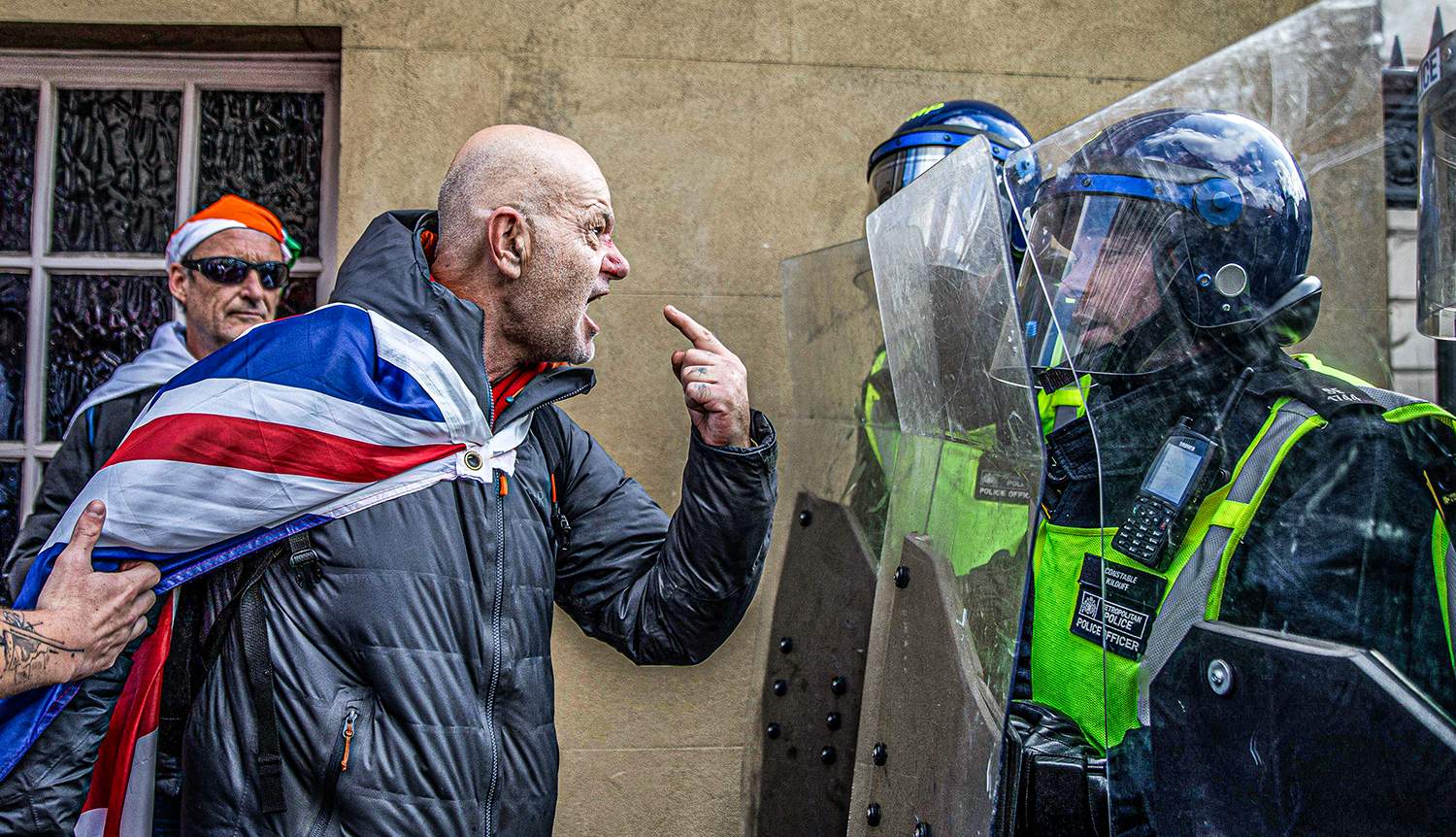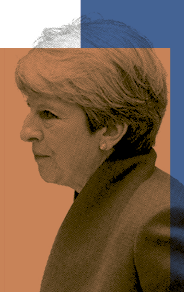
Read our Monthly Magazine
And support our mission to provide fearless stories about and outside the media system
Anti-racist campaigners have accused the Metropolitian Police of adopting a ‘two tier’ approach to policing, after hundreds of people were arrested at a peaceful pro-Palestinian protest in the capital, followed by only relatively small numbers of arrests of far right rioters at the ‘Unite the Kingdom’ rally last Saturday.
On Saturday an estimated 150,000 protestors joined the ‘Unite the Kingdom’ demonstration, organised by the far-right extremist, known as Tommy Robinson. The rally culminated in violent scenes, with protesters shouting racist chants, and assaulting police officers.
Yet despite trouble being widely predicted in advance, the Met deployed just 1,000 officers and arrested just 24 protesters. This compares to the 2,500 officers deployed at the recent ‘Defend our Juries’ protest in support of banned pro-Palestinian campaign group Palestine Action, after which nearly 900 peaceful protesters were arrested.
Jan Nielson, an anti-racism activist and steward at the Stand Up to Racism counter-protest, told Byline Times that the differing response to the two protests was stark.
“We were kettled until the police received reinforcements. But the number of police deployed to arrest peaceful demonstrators at the ‘Defend Our Juries’ demonstration just a week earlier was double those deployed against the far-right”, she said.
Ben Jamal, director of the Palestine Solidarity Campaign, also voiced concern that the police’s approach may have been inconsistent, given the political nature of the protests.
“These violent people [far-right protestors] were attacking officers. But they had more police officers intervening in the Defend our Juries protest, to go and arrest old age pensioners holding placards, than they had for this demonstration.”
Police Under Scrutiny for Response to Unite the Kingdom Rally
Just a few 100 yards behind the billionaire-backed Unite the Kingdom stage, gripping rain-soaked pro-immigration placards, and separated from Robinson supporters by a single line of police officers, stood an estimated 5,000 Stand Up to Racism counter-demonstrators. As the far-right crowds increased, it didn’t take long for the counter-protesters to find themselves flanked on all sides by members of the opposing demonstration.
What followed was nearly five hours of tense stand-offs between the Metropolitan Police and members of the ‘Unite the Kingdom’ rally, during which 24 arrests were made, and 26 officers were injured trying to fend off the growing crowds attempting to muscle their way into Whitehall.
A Two-Tiered System?
Jamal, who regularly speaks at pro-Palestinian protests, also raised issues with what he perceives as a difference in the way that different groups are protected by the police.
“We’ve been so demonised that if we’re marching anywhere where there’s a synagogue in the vicinity, that’s grounds for the police to stop the march. However, when representatives from the Muslim community said they were frightened to go into London [because of the protests], the police said they had no reason to be.”
“When I asked about the plan to get everybody out of Whitehall safely, and how long it would take. The response I got [from a police officer] was that the far-right were down the road, and he wasn’t going down there to confront them because he had two small children”.
Jamal also says that he observed men from the opposing protest being allowed through the police blockade before later shouting verbal abuse at suspended Labour MP Diane Abbott, but that the police did nothing. Instead, he claims that officers said they couldn’t stop people from walking where they wanted to.
Ben Jamal is currently facing charges for public order offences due to his failure to comply with police conditions regarding where he and members of the Palestine Solidarity Campaign could march during a peaceful demonstration. The demonstrators had planned to lay flowers for the children of Gaza outside the BBC headquarters.
ENJOYING THIS ARTICLE? HELP US TO PRODUCE MORE
Receive the monthly Byline Times newspaper and help to support fearless, independent journalism that breaks stories, shapes the agenda and holds power to account.
We’re not funded by a billionaire oligarch or an offshore hedge-fund. We rely on our readers to fund our journalism. If you like what we do, please subscribe.
Questions Over Surveillance
Another contentious issue raised after the rally was the police’s decision not to deploy facial recognition technology for the ‘Unite the Kingdom’ protests. Senior lecturer at the University of East Anglia and expert in protests, policing and human rights, David Mead told Byline Times:
“Policing legitimacy – and thus our consent to the continued exercise of state power – depends on police being and being seen to treat groups fairly, consistently and not arbitrarily. Using facial recognition at Notting Hill Carnival and outside mainstream sporting and cultural events, while not doing so at the [Unite the Kingdom rally], given the likely prominence there of domestic violence abusers, seems strange”.
The Metropolitan Police did not respond to a request for comment.

